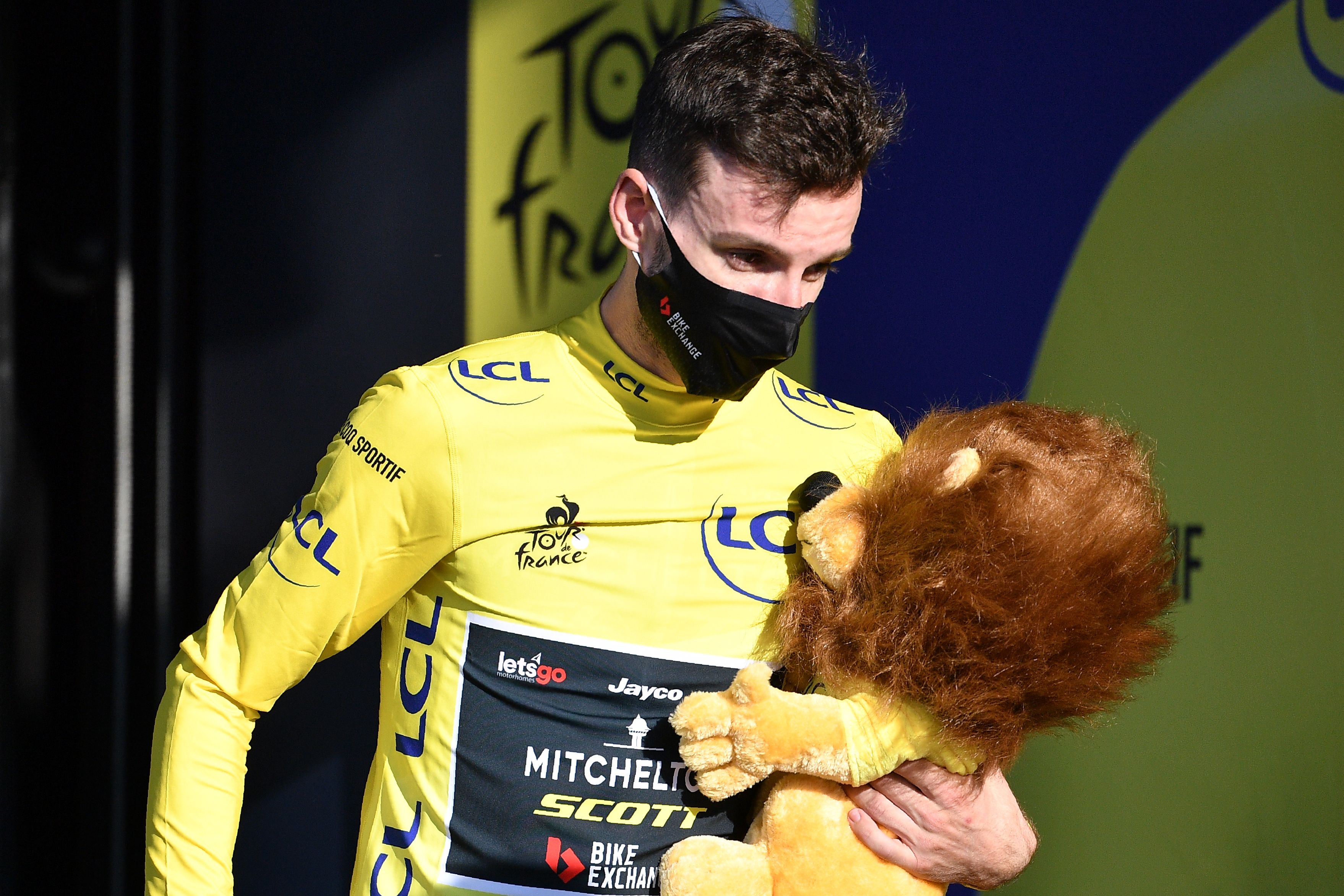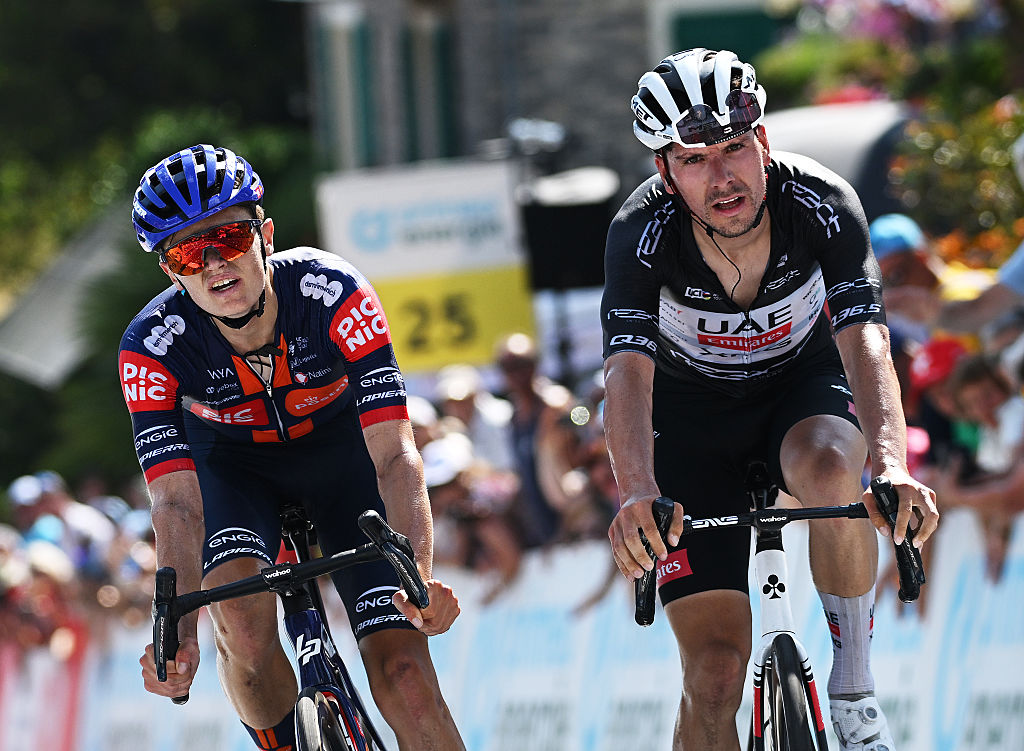Adam Yates bemused to find himself in Tour de France lead after Julian Alaphilippe time penalty
'I don’t think anybody wants to take the yellow jersey like this'

The latest race content, interviews, features, reviews and expert buying guides, direct to your inbox!
You are now subscribed
Your newsletter sign-up was successful
Adam Yates (Mitchelton-Scott) came to the Tour de France looking for stage wins but he found himself inheriting the yellow jersey on stage 5 after race commissaires ruled that Julian Alaphilippe (Deceuninck-QuickStep), in the lead since Sunday, should be penalised for taking a bidon from the roadside in the final 20km.
Yates said he was ready to quit the Tour de France finish area in the team bus when the shock news filtered through that his presence was urgently required back at the winner’s podium.
Curiously, the Briton had already found himself a ‘virtual leader’ of the Tour de France in 2016 after Chris Froome’s crash close to the top of the Mont Ventoux, but the classification was altered back in Froome’s favour and he never donned yellow.
This time, the revision to the classification was in Yates’ favour, and he will start stage 6 on Thursday as Britain’s first leader of the Tour since Geraint Thomas won it outright back in 2018.
“I don’t think anybody wants to take it like this, you want to do it by winning or taking time,” Yates said just minutes after gaining his first ever Grand Tour lead. “But it is what it is.
“I was on the bus, already showered, waiting for the guys to finish off showering and we’d have been going to the hotel.
“But somebody called our director, told us we might have yellow. But even then, I only knew for sure when I asked Julian and he said he’d taken a time penalty for taking a feed. I don’t know what happened, but there we are.”
The latest race content, interviews, features, reviews and expert buying guides, direct to your inbox!
Asked if he would wear the yellow jersey given the somewhat bizarre circumstances in which he had gained the lead, Yates said “yes, probably. I’m pretty sure I’d get fined if I didn’t so I’ll have to.”
Mitchelton-Scott – then Orica-GreenEdge – last wore the yellow jersey at the Tour in 2013, when both Daryl Impey and Simon Gerrans held it in the first week of the race.
In the longer term, Yates said there would be no alteration to his plans for the remainder of the Tour, regardless of the jersey on his back. He is in France with an eye to winning stages. “It would have been nice to go for it , but the pace was so high and it wasn’t a super hard stage,” Yates said. The Briton was already on the attack on stage two with Alaphilippe and Mark Hirschi (Team Sunweb) but had to settle for third that day.
Thursday’s summit finish at Mont Aigoual might provide an opportunity for the Bury native.
“Obviously tomorrow is harder and like I said I want to get involved, be aggressive, go for stages and try and win,” he said. “I’ll still try tomorrow, being in yellow doesn’t change that. I’ll maybe be a bit more marked, but other than that, nothing more.”
As for how he would look back on the events of stage 5 of the 2020 Tour de France and how, when he was in his eighties, he would tell his grandson about them, Yates responded in his characteristically direct style.
“Jesus, good question,” Yates said. “I mean, look, I came close to wearing yellow in 2016, so it’s happened to me twice. I’d rather get yellow with my legs more than anything and so we’ll just take it stage by stage and see how it goes.”
The stage itself had unfolded with very little of interest happening right up until the last ten kilometres, and Yates said the explanation was probably down to the circumstances. “It was a very tough stage yesterday,” he said. “And today was basically downhill and headwind, and if you’re going to go in a break on a day like that when a Tour’s three weeks long, you’re not going to get anywhere.
“Everybody was playing it quite smart and trying to waste as little energy as possible and yeah, nothing happened.”
All the drama, in Yates’ case at least, played out afterwards.
Alasdair Fotheringham has been reporting on cycling since 1991. He has covered every Tour de France since 1992 bar one, as well as numerous other bike races of all shapes and sizes, ranging from the Olympic Games in 2008 to the now sadly defunct Subida a Urkiola hill climb in Spain. As well as working for Cyclingnews, he has also written for The Independent, The Guardian, ProCycling, The Express and Reuters.

